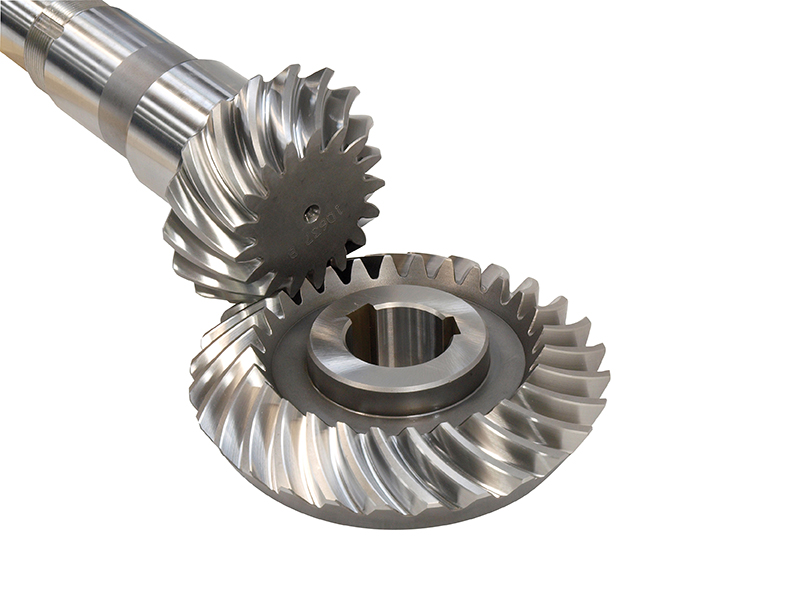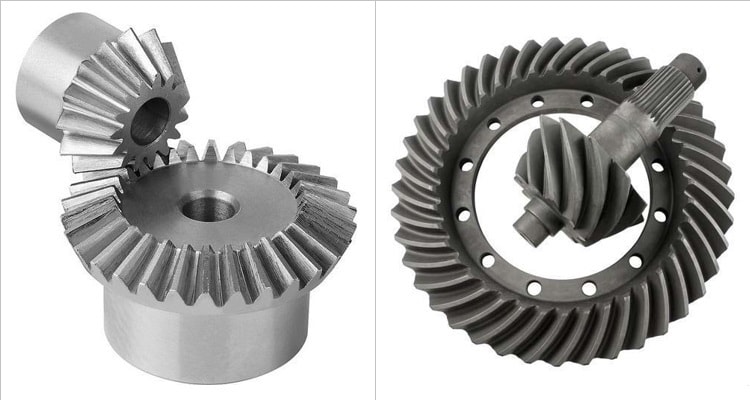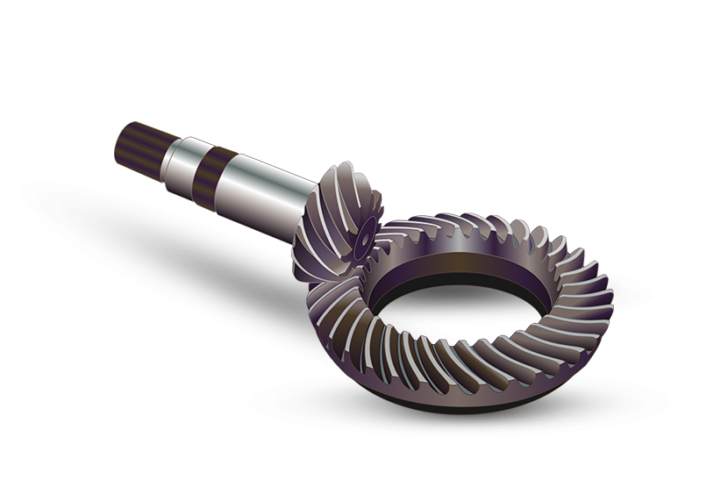Product Description
Product Description
| Material: | 45#Steel,20CrMnTi,40Cr,20CrNiMo,20MnCr5,GCR15SiMn,42CrMo,2Cr13stainless steel,Nylon,Bakelite,Copper,Aluminium.etc |
| Process: | The main process is Gear Hobbing, Gear Shaping and Gear Grinding, Selecting production process according to the different products. |
| Heat Treatment: | Carburizing and quenching ,High-frequency quenching,Nitriding, Hardening and tempering, Selecting heat treatment according to the different materials. |
| Testing Equipment | Rockwell hardness tester 500RA,
Double mesh instrument HD-200B & 3102, Gear measurement center instrument CNC3906T other High precision detection equipments |
| Certification | 0.1-90 kg |
| Casting Size: | Max linear size: 1200 mm, Max diameter size: 600 mm |
| Machining tolerace: | GB/T19001-2016/ISO9001:2015 |
| Machining surface roughness: | Ra0.8 ~ 6.3 um |
| Material standard: | GB, ASTM, AISI, DIN, BS, JIS, NF, AS, AAR |
| Usage: | Used in printing machine, cleaning machine, medical equipment, garden machine, construction machine, electric car, valve, forklift, transportation equipment and various gear reducers.etc |
| Quality control: | 100% inspection before packing |
| Manufacture Standard | 5-8 Grade ISO1328-1997. |
Company Profile
SIMIS CASTING, established in year of 2004, is a professional foundry, including integrating development and production together, specialized in producing various kinds of investment casting parts, and CHINAMFG parts. These casting parts are widely used in automobile industry, railway vehicle, construction machine, municipal works, pipeline, petrochemical industry, mine, electric utility industry and so on.
SIMIS has 6 affiliated casting workshop and 2 professional CNC machining workshops. There are 500 staffs and 40 engineers now in our company. Its annual production capacity for all types of casting parts is about 3000 tons. Holding over 100 sets of advanced casting parts, machining and test equipments.
Gear including planetary gear, spiral gear, bevel gear, spiral bevel gear, helical gear, spur gear, helical spur gear, conical gear, CHINAMFG pinion gear, conical CHINAMFG and bevel gear, worm gear and shaft, we can make standard thickness gear 1 to 8 Module, 1M12, 2M20, 2.5M25, 3M30, 4M40, 5M50, 6M60, 8M80. Non-standard thickness 2 to 8 Module: 2M16, 2.5M20, 3M20, 4M30, 4M35, 5M40, 5M30, 6M40, 6M50, 8M60. We can also make customized gear according to your drawing or sample.
Sprocket including simplex sprocket, duplex sprocket, triplex sprocket, and has 45 steel finished hole sprocket, 06B 06C 08A 08B 08C 10A 12A 16A 24A sprocket and so on.We can also make customized gear according to your drawing or sample too.
Welcome you come to visit us for customized various types of non-standard gear, sprocket synchronous wheel, helical gear, bevel gear, shaft, worm gear and other products with the lowest quality!
Application Field
Testing Ability
| Dimensional | Non-Destructive Tests(N.D.T.) | Chemical & Mechanical |
| Surface Roughness Test | Dye Penetrant | Chemical analysis |
| Microscopic Measurement | Radiography (RT) | Metallography |
| 3D ScHangZhou | Magnetic Particle (MT) | Tensile Strength |
| CMM | Ultra-Sonic (UT) | Yield Strength |
| Impact Test | Hardness Test | Elongation Rate |
| Shrinkage Rate |
Surface Treatment
FAQ
Q1:Are you manufactory or trade company?
A1:We are an enterprise integrating manufacturer and trade for many years already in ZheJiang province, China. And we are AAA grade credit enterprise, and also we have cooperative plants to provide other services such as plating and coating .
Q2: How could I get a free quotation?
A2:Please send us your drawings by Alibaba or email. The file format is PDF / DWG / STP / STEP / IGS and etc. IF there are no drawings, we can make the drawings according to your samples!
Q3:How to control quality?
A3:First, all raw materials are inspected by the quality control department before they are put into storage. Second, during the casting process, 3 times of spectral analysis were performed at the front, middle and back respectively. Third, after the parts are cleaned, perform a first visual inspection to check whether the product has casting defects before sending it to the next process. Fourth, conduct a comprehensive QC inspection of each part before shipment, including chemical composition, mechanical properties and other specific tests. Transactions can be through Alibaba's trade assurance.
Q4:Can we have our Logo or company name to be printed on your products or package?
A4:Sure. Your Logo could be printed on your products by Hot Stamping, Printing, Embossing, UV Coating, Silk-screen Printing or Sticker.
/* January 22, 2571 19:08:37 */!function(){function s(e,r){var a,o={};try{e&&e.split(",").forEach(function(e,t){e&&(a=e.match(/(.*?):(.*)$/))&&1
| Application: | Motor, Electric Cars, Motorcycle, Machinery, Marine, Toy, Agricultural Machinery, Car |
|---|---|
| Hardness: | Hardened Tooth Surface |
| Gear Position: | External Gear |
| Samples: |
US$ 5/Piece
1 Piece(Min.Order) | Order Sample |
|---|
| Customization: |
Available
| Customized Request |
|---|
.shipping-cost-tm .tm-status-off{background: none;padding:0;color: #1470cc}
|
Shipping Cost:
Estimated freight per unit. |
about shipping cost and estimated delivery time. |
|---|
| Payment Method: |
|
|---|---|
|
Initial Payment Full Payment |
| Currency: | US$ |
|---|
| Return&refunds: | You can apply for a refund up to 30 days after receipt of the products. |
|---|
How do spiral gears contribute to reducing noise and vibration?
Spiral gears contribute significantly to reducing noise and vibration in gear systems. Their unique design and characteristics help minimize unwanted sound and vibrations. Here's how spiral gears achieve noise and vibration reduction:
- Gradual Tooth Engagement: Spiral gears have a helical tooth arrangement, which results in gradual tooth engagement as the gears mesh. Unlike spur gears with instantaneous full tooth contact, the helical teeth of spiral gears gradually come into contact, reducing the impact and shock during gear meshing. This gradual engagement helps to minimize noise and vibration.
- Improved Contact Pattern: The helical tooth profile of spiral gears produces a favorable contact pattern between the teeth. The contact pattern is more evenly distributed across the tooth face compared to spur gears, which reduces stress concentration and potential noise generation. The improved contact pattern contributes to smoother and quieter gear operation.
- Load Distribution: Spiral gears distribute the load over multiple teeth due to their helical shape. This load distribution helps to minimize localized stresses and reduces the risk of tooth breakage or pitting, which can contribute to noise and vibration. By spreading the load across a larger contact area, spiral gears ensure smoother and more stable gear operation.
- Reduced Sliding Friction: The sliding friction between gear teeth can generate noise and vibration. Spiral gears, with their helical tooth profile, exhibit reduced sliding friction compared to spur gears. The sliding motion is distributed along the helical path, resulting in smoother tooth contact and reduced friction-induced noise and vibration.
Collectively, these factors—gradual tooth engagement, improved contact pattern, load distribution, and reduced sliding friction—contribute to the noise and vibration reduction achieved by spiral gears. This makes them particularly suitable for applications where quiet operation and minimal vibration are essential, such as precision machinery, automotive transmissions, and other noise-sensitive environments.
What are the limitations of using spiral gears in certain applications?
While spiral gears offer numerous advantages, they also have certain limitations that need to be considered when selecting them for specific applications. Here are some limitations of using spiral gears:
- Axial Thrust: Spiral gears generate axial thrust due to their helical tooth arrangement. This axial thrust can impose additional forces on the gear shafts and bearings, requiring proper design considerations and potential incorporation of thrust bearings in certain applications. Managing and compensating for axial thrust is crucial to ensure smooth gear operation.
- Manufacturing Complexity: The manufacturing process for spiral gears involves more complexity compared to straight-toothed gears. The helical tooth profile requires specialized cutting tools and machining techniques, adding to the manufacturing cost and complexity. This complexity may limit their use in applications with strict cost constraints or where simplicity of manufacturing is a priority.
- Axial Space Requirement: Spiral gears require more axial space compared to parallel-axis gears. The helical tooth profile results in a longer gear face width, which can limit their use in applications with space constraints. It is important to ensure that sufficient axial space is available to accommodate the larger size of spiral gears.
- Gear Alignment: Proper gear alignment is critical for spiral gears to function optimally. Any misalignment between the driving and driven gears can result in increased noise, vibration, and premature wear. Achieving and maintaining precise gear alignment may require additional attention and care during installation and regular maintenance.
- Speed Limitations: Spiral gears may have certain speed limitations due to the potential for tooth deflection and increased heat generation. At high speeds, the centrifugal forces acting on the helical teeth can cause deflection, leading to reduced gear accuracy and increased noise. Additionally, the sliding contact between the teeth can result in higher heat generation, requiring appropriate lubrication and cooling measures in high-speed applications.
While these limitations exist, they can often be managed or mitigated through proper design, engineering, and maintenance practices. It is important to carefully evaluate the specific requirements and constraints of the application to determine whether spiral gears are suitable or if alternative gear types may be more appropriate.
Can you explain the advantages of using spiral gears over other gear types?
Spiral gears, also known as helical gears, offer several advantages over other gear types. These advantages stem from their unique design and characteristics. Here are some key advantages of using spiral gears:
- Smooth and Quiet Operation: The helical tooth arrangement in spiral gears enables gradual tooth engagement, resulting in smoother and quieter operation compared to straight-cut gears. The angled teeth allow for gradual contact, reducing impact and noise during gear meshing.
- High Load Capacity: Spiral gears can handle higher loads compared to straight-cut gears. The helical tooth design distributes the load over multiple teeth, increasing the load-carrying capacity and providing improved strength. This makes spiral gears well-suited for applications that require the transmission of high torque or the handling of significant loads.
- Efficient Power Transmission: Spiral gears exhibit higher efficiency compared to straight-cut gears. The helical tooth arrangement helps minimize sliding friction between the teeth, resulting in reduced power losses due to friction during gear operation. This efficiency is crucial in applications where power transmission needs to be optimized, and energy losses need to be minimized.
- Reduced Noise and Vibration: The gradual tooth engagement in spiral gears leads to reduced impact and vibration during gear meshing. This results in quieter operation, making spiral gears suitable for applications where noise reduction is important, such as in precision machinery or noise-sensitive environments.
- Axial Thrust Compensation: Spiral gears can be designed with opposite helix angles on mating gears, which helps cancel out the axial thrust generated during gear meshing. This feature eliminates the need for additional thrust bearings, simplifying the gear design and reducing complexity.
- Versatility and Adaptability: Spiral gears can be manufactured in various configurations, including spur, helical, and double helical designs. This versatility allows for their application in a wide range of machinery and systems, providing flexibility in gear design and usage.
These advantages make spiral gears a preferred choice in many applications where smooth operation, high load capacity, efficient power transmission, reduced noise, and versatility are important considerations.
editor by Dream 2024-04-22




